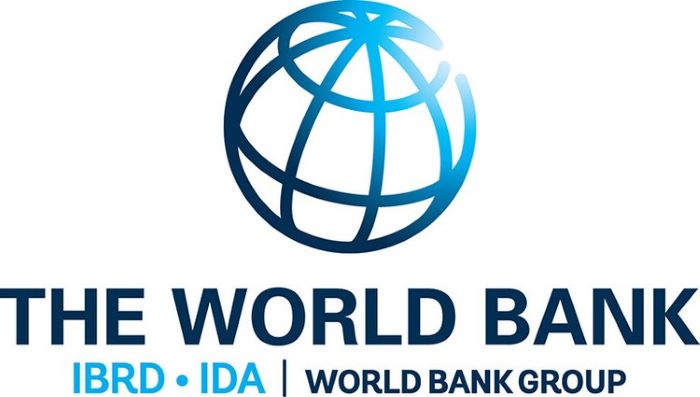Finance
Cities Key to Solving Climate Crisis

Innovation and investment in lower-income cities essential to achieving global net-zero emissions by 2050
Cities – home to more than half of the world’s population and responsible for about 70% of global greenhouse gas emissions – are at the heart of the climate challenge. A new World Bank report, “Thriving: Making Cities Green, Resilient, and Inclusive in a Changing Climate,” investigates the crucial role cities play in both stopping climate change and protecting people from its impacts.
Drawing on data from more than 10,000 cities across the world, this new analysis casts a spotlight on cities’ pivotal role in creating wealthier, healthier, and safer lives for people, and reversing the negative effects of climate change on food, water, biodiversity, and more. It also examines how cities contribute to climate change through greenhouse gas (GHG) emissions and how urban households will be impacted by the increasing frequency and intensity of weather events such as droughts, floods and cyclones.
The report underscores that although cities in lower-income countries contribute only about 14% of all global urban CO2 emissions, cities in low- and lower-middle-income countries will face the most severe climate change–related hazards. In addition, lower-income cities must develop without following the historic emissions trajectories of cities in higher-income countries if we are to achieve net zero emissions by 2050. Without innovation and investment in greening these cities, global GHG emissions will remain above the level required to limit global warming to 1.5 degrees Celsius – even if high- and upper-middle-income countries successfully transition to net zero by 2050.
“Cities are at the forefront of the climate fight. By 2050, an estimated 70% of all people will live in cities. This means today’s investments in making cities resilient and inclusive will determine whether most people will be able to access basic services, find jobs, and live with dignity,” said Axel van Trotsenburg, Senior Managing Director, Development Policy and Partnerships, World Bank. “Through targeted action, we can transform our urban environments to ensure a thriving future for all.”
The report emphasizes the urgent need for cities to adopt integrated, green urban planning strategies that address these interconnected challenges, including investing in green spaces and sustainable infrastructure. The anticipated addition of 2.5 billion urban dwellers by 2050 will further strain urban water resources and infrastructure, making the protection and restoration of ecosystems, such as forests, a critical component of urban resilience and water security.
In sub-Saharan Africa alone, the region’s urban population is projected to grow by a further 950 million to reach 1.26 billion by 2050. Charting a different development path that involves more compact and connected urban growth rather than the current fragmented, disconnected, and sprawling patterns of urbanization in lower-income countries is essential for both climate and poverty reduction. This is crucial to helping ensure that sub-Saharan Africa, for example, avoids the 88 percent increase in its GHG emissions by 2050 that it is projected to have under current policies.
Lower-income cities are already experiencing increased exposure to floods, heat stress, tropical cyclones, sea-level rise, water stress, and wildfires, and projected exposure for 2030-40 is to be significantly higher than for cities in higher-income countries. Lower-income cities are less resilient to shocks, experiencing more severe economic impacts, while, in many cases, also absorbing an influx of residents fleeing extreme weather in rural areas. A lack of inclusiveness contributes to this vulnerability, due to higher rates of poverty and lower levels of access to basic services such as health care, education, and water. Furthermore, when cities expand rapidly to receive climate and other refugees, the new settlements are often informal and established on the outskirts of cities with limited access to services, exacerbating inequality and exclusion and social tensions.
The report provides recommendations on policy options (information, incentives, insurance, integration, and investments) to help cities reduce their emissions, enhance their resilience to climate shocks, and become more inclusive to keep the poorest populations from feeling the impacts of climate most acutely. For example, integration within cities can help minimize unnecessary sprawl, lower GHG emissions, and bring people closer to jobs and opportunities, while insurance can lessen the financial impact of disasters, complementing adaptation strategies.
Source – World Bank
-
Auto2 years ago
Honda Marine Debuts All-New BF350 Outboard Company’s First V8 Motor Available Commercially, Flagship Model Offers Premium Power and Unparalleled Performance for Extraordinary Boating Experiences
-
Auto2 years ago
New Features Further Increase Desirability Of Bentayga Range
-
Technology2 years ago
Oracle Partners with TELMEX-Triara to Become the Only Hyperscaler with Two Cloud Regions in Mexico
-
Auto2 years ago
Honda and Acura Electric Vehicles Will Have Access to Largest EV Charging Networks in North America Aided by New Agreements with EVgo and Electrify America
-
Lifestyle2 years ago
2023 Nike World Basketball Festival Brings the Best of Basketball Style, Culture and Community